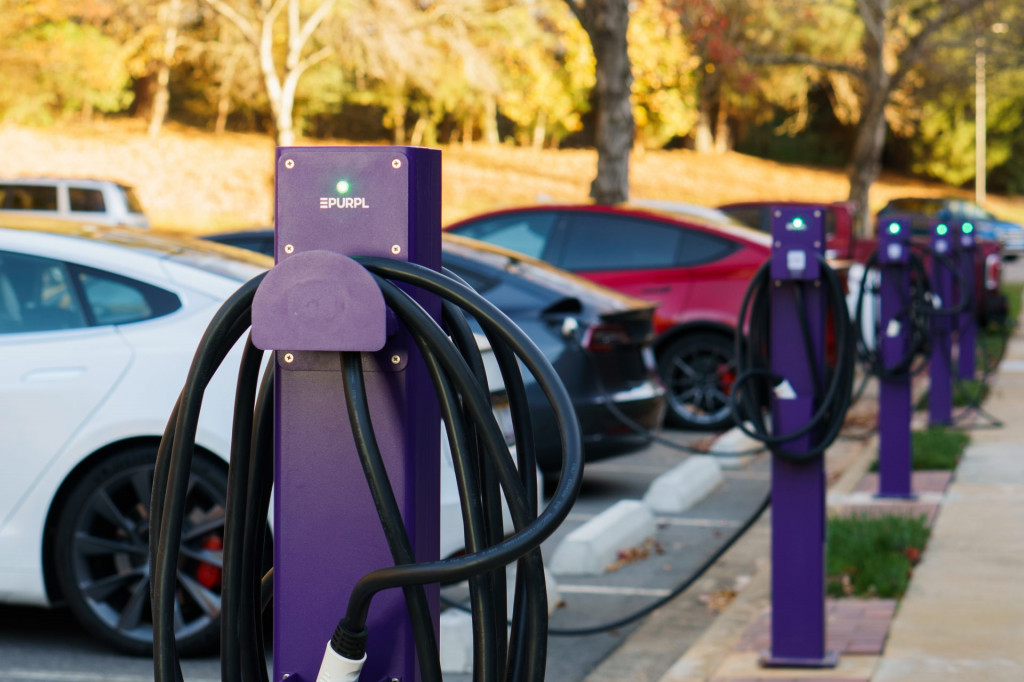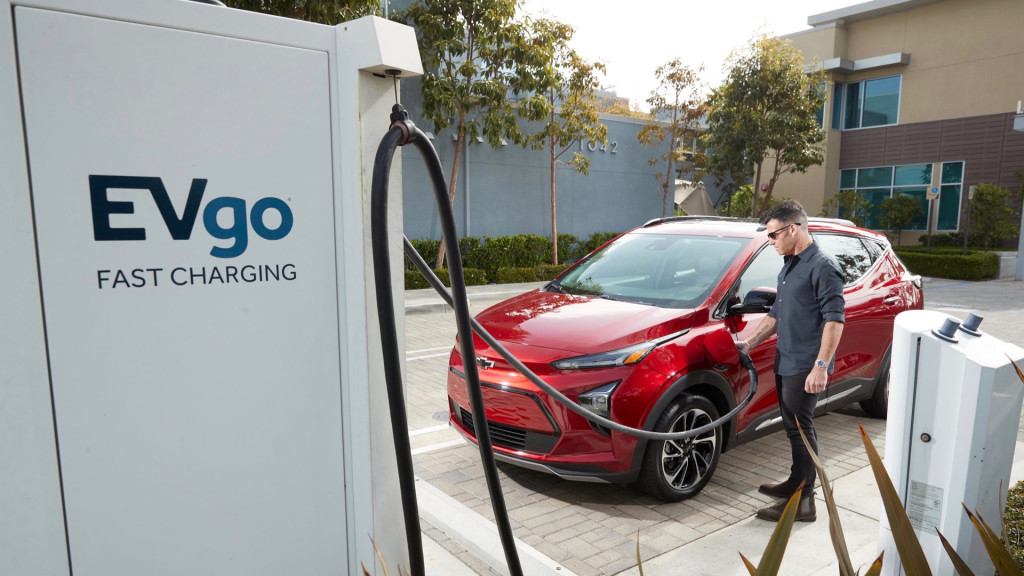Thorough planning of EV charging station placement, specifically with a greater emphasis on workplace charging, could cut the need for more power plants, according to a new MIT study.
Published in the journal Cell Reports Physical Science, the study uses data from New York City and Dallas to counter the narrative that an influx of electric cars will create massively higher electricity demand and necessitate more power plants. Researchers argue that smarter planning will both cut the need for additional power plants and utilize excess solar capacity.
Instead of assuming that most EV drivers will charge their cars at home in the early evening, after getting home from work, researchers call for additional workplace charging. This will take advantage of abundant solar generating capacity at mid-day instead of trying to tap into the grid in the early evening, when demand and peak loads tend to be higher.

Atom Power Purpl EV charging station
Home charging still has a place in this strategy, as long as drivers delay charging until later at night. As utilities and previous studies have emphasized, this pushes EV charging into periods of lower demand, utilizing excess grid capacity and potentially rewarding drivers with lower electricity rates.
"Combining delayed home charging and workplace charging can be a particularly successful strategy," researchers said in a statement, adding that decisions about charger locations should emphasize these two scenarios.

2022 Chevrolet Bolt EUV at EVgo fast-charging station
That conclusion aligns closely with what an Energy Department study pointed out years ago: that focusing charging around homes and workplaces could be more important than just placing chargers everywhere. And California heat waves in 2021 and 2022 helped underscore what best helps avoid the use of "peaker" sources—and prevent brownouts.
However, part of implementing such a strategy will be changing employers' attitude toward onsite charging. General Motors has committed to a high number of EV chargers for its employees, but other companies need to see workplace EV charging as more than a perk for its workers, a 2019 report found.












